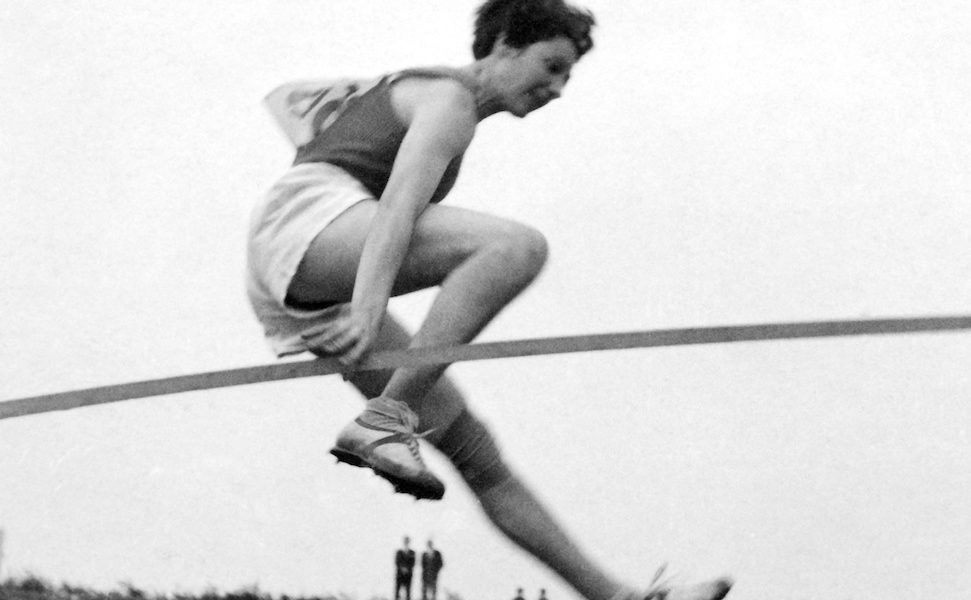
In 1936, Germany barred its own high jump champion from participating in the Olympics – even though she was on track to win gold. At a championship meet one month before the Olympics, a Jewish girl named Gretel Bergmann leapt 5 feet 3 inches, and placed first at a meet of German high jumpers. Shortly after, she received a letter from Nazi officials informing her she didn’t make the cut.
Though they didn’t say so directly, the reason was obvious: Gretel was Jewish.
Gretel, who was called “The Great Jewish Hope” and would later be known as Margaret Bergmann Lambert, told interviewers that German officials never planned to let her join the Olympic team in the first place, and had even coerced her into training, just to make the country seem unbiased in its Olympic selections.
The next year, Lambert emigrated to the United States with $10 in her pocket, the maximum allotted her to bring. She gave up track and field entirely in 1940, when she had to focus on getting her parents out of Germany.
Though she suppressed her anger and regret for years, in 1996, she found herself in tears while watching a pre-Olympics meet on television. “I remember watching those athletes, and remembering what it was like for me in 1936, how I could very well have won an Olympic medal. And through the tears, I said, ‘Damn it!’”
Lambert passed away last week. But her legacy as “the great Jewish hope” will be remembered.
Image: Still from HBO’s ‘Hitler’s Pawn: The Margaret Lambert Story’
JTA has documented Jewish history in real-time for over a century. Keep our journalism strong by joining us in supporting independent, award-winning reporting.





